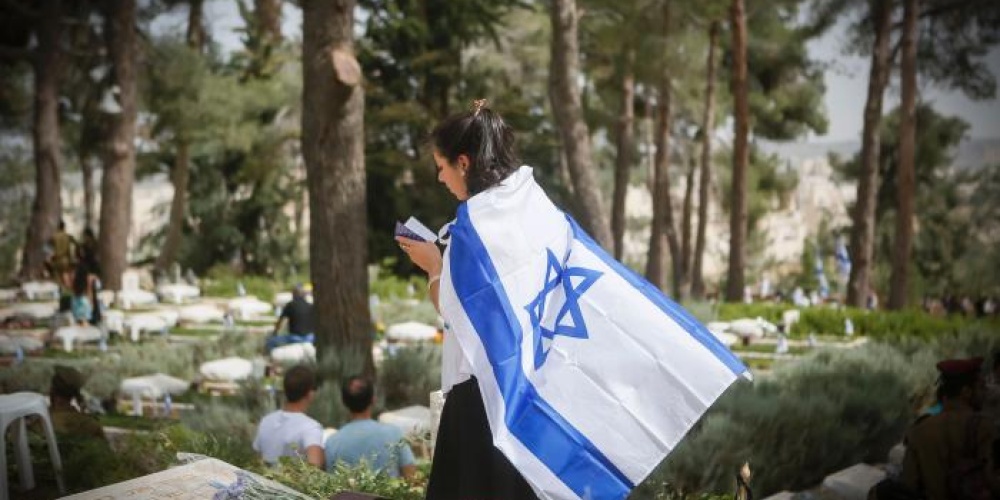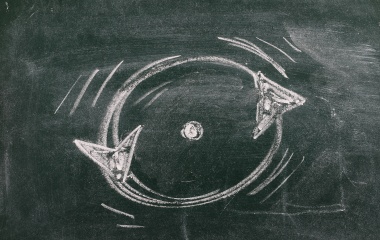
"Rav Yehoshua ben Levi said, women are obligated in the reading of the Megillah she'af hen, because they, too, were included in the miracle" (Megillah 4a). If not for this teaching, one would have assumed that women would be exempt from the mitzvah of Megillah, being that it is a time-bound, positive mitzvah which women are generally exempt from[1].
Tosafot (s.v. she'af) quotes a debate as to the meaning of this phrase. According to the Rashbam, this phrase gives legal backing to what is most obvious. After all, it was a woman, Esther, who is the hero of Purim and thus, it would be strange to exempt women from this mitzvah. Rashbam notes other examples where women are obligated in time-bound mitzvoth as "the primary miracle" came about through their efforts. This includes Pesach where, our Sages assert, "in the merit of the righteous women, we were redeemed from Egypt" (Sotah 11b). It was the women who, against the wishes of the men, insisted on bringing children into the world despite the decrees of Pharaoh. This is actually one of the reasons we eat charoset—its fruit reminding us how the women seduced their husbands under the citrus trees. The other example the Rashbam notes is that of Chanukah, where he suggests that the hero of this miracle is the little-known Yehudit. Using her beauty, Yehudit was able to arrange to meet a Greek general, have a "romantic meal" with him and, when he fell asleep, decapitated him, causing the enemy to flee. That a story that has no clear source would be seen as greater than the heroism of the (male) Maccabees highlights the fact that in war, it is often not only what happens in the battlefield that is most important, but what occurs behind the scenes—what we today might call the diplomatic front.
Yet the Tosafists (and Rashi) reject this interpretation. They quite cogently note that the expression af hen, that "they, too," were included in the miracle, means just that. They were also included in the miracle, and thus must observe the mitzvoth--irrespective of any role they or anyone else might have played. Women were also included in Haman's decree "to destroy, to slay, and to cause to perish, all Jews, both young and old, little children and women, in one day" (Esther 3:13). So, too, in Egypt, the women were enslaved[2]—so much for concern for women and children. And on Chanukah, "hagezerah hayta meod aleihem, the decree was very much on them". This striking language "very much" (it resonates more in the Hebrew) that Tosafot uses suggests that our enemies understood that it was the strength and support of those who stood behind the soldiers that was the key to victory. If one can weaken the Home front, one can then defeat the enemy in the battlefield; but as long as the Home front is strong, an army has the strength and conviction to do what it needs to do to ensure victory.
This debate on how to understand the women's obligation is seemingly quite unnecessary. Rashi, Rashbam, and Tosafot all agree that Esther (with support from many others) was the hero of Purim, and that it was in the "merit of righteous women that we were redeemed from Egypt", and it is also clear that women were imperiled no less than men. All agree that both explanations are valid.
At the same time, this "debate" highlights differing perspectives on what we are to celebrate. Rashi and Tosafot celebrate that, despite the overwhelming numbers, firepower, geography, and every other advantage our enemies have enjoyed throughout history, the Jewish people continue to survive against all odds. We have faced those who want to kill every last man, woman, and child and, despite the suffering, we are the ultimate victors. We who survived were slotted for extermination, while the ancient Egyptians, Persians, Greeks, and Romans are known only through the history books. The mere fact that there is still a Jewish people is worthy of celebration.
While this explanation is truer to the reading of the text, the Rashbam, it seems to me, argues that mere survival is not enough. We did not just somehow passively and miraculously survive. Through great strategic decision-making (think Esther), cunning (think Yehudit), fearlessness (think the women in Egypt), mobilizing all in the efforts (think the three-day fast in Shushan), we showed how quality defeats quantity. Just as the human race is amongst the weakest of species but nonetheless dominates the earth and beyond, the Jewish people were once (thank G-d, this is no longer true, adding an additional reason to celebrate) the weakest of the nations physically. Yet our moral, spiritual, and intellectual strengths enabled us to return to our homeland and create the most amazing state in the world. With few natural resources, but the greatest human ones, Israel has become a world power—in science and technology, medicine and morality, militarily and agriculturally, and so much more. And that—not our survival through a long and bitter exile—is why we celebrate.
May the day soon come when our celebration and joy is complete, as all will "beat their swords into ploughshares, and their spears into pruning hooks; nation shall not lift up sword against nation, neither shall they learn war any more" (Isaiah 2:4).
[1] In reality, this famous principle has about as many exceptions as the rule itself. Women are obligated not only in reading the Megillah, but in lighting Chanukah candles, kiddush, and eating matzah, all of which are time-bound positive mitzvoth.
[2] Why exactly Pharaoh decreed death only upon male children is a discussion amongst the commentaries.
photo: Flash 90



